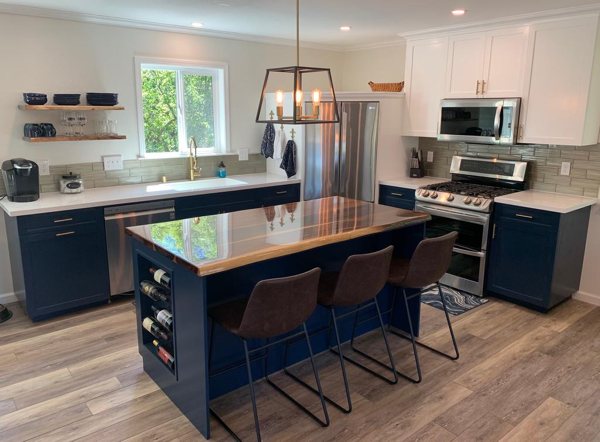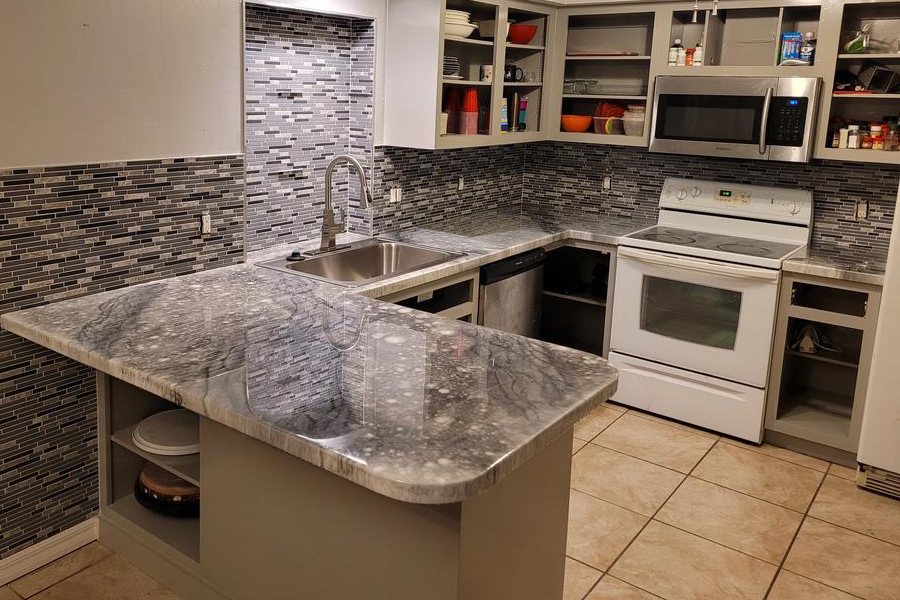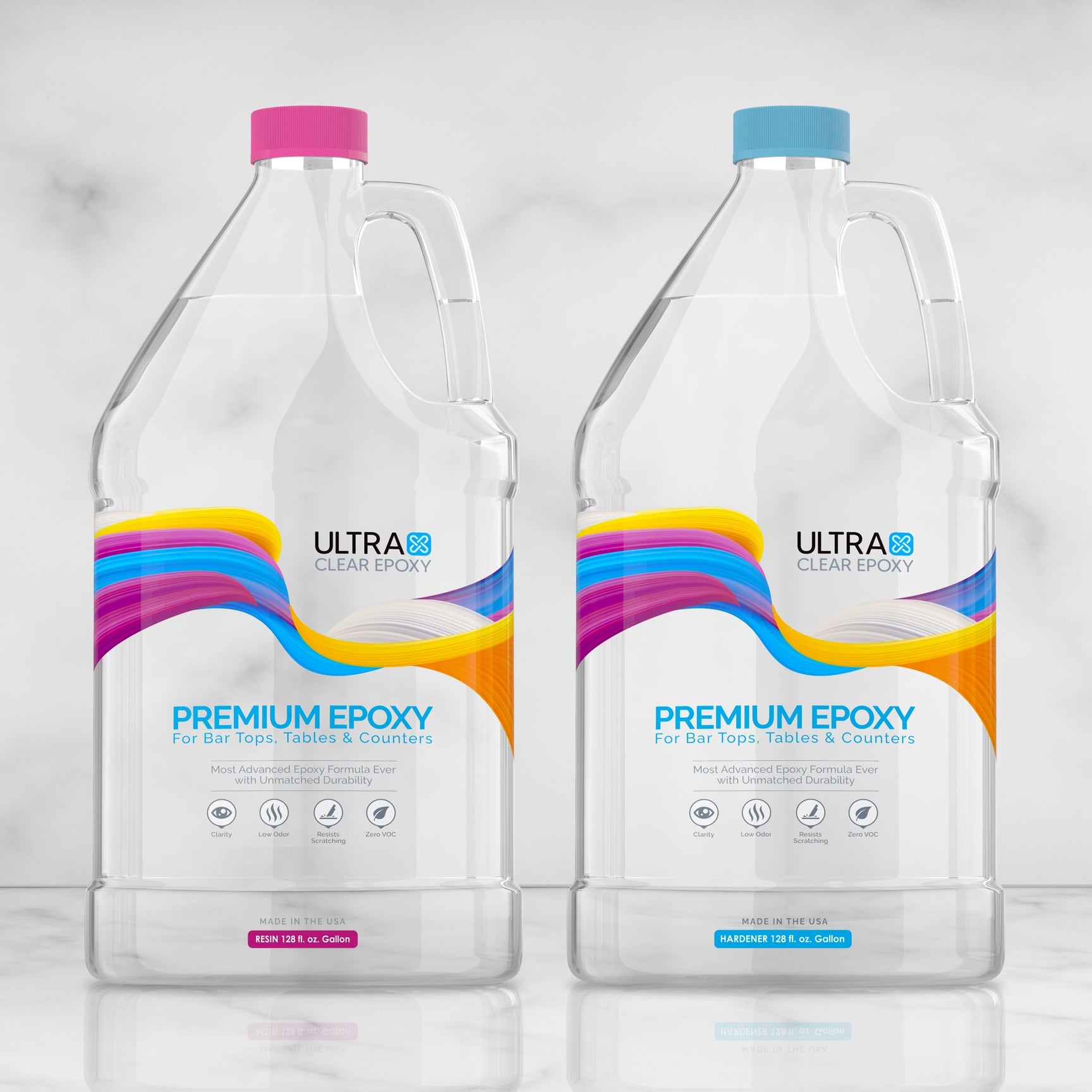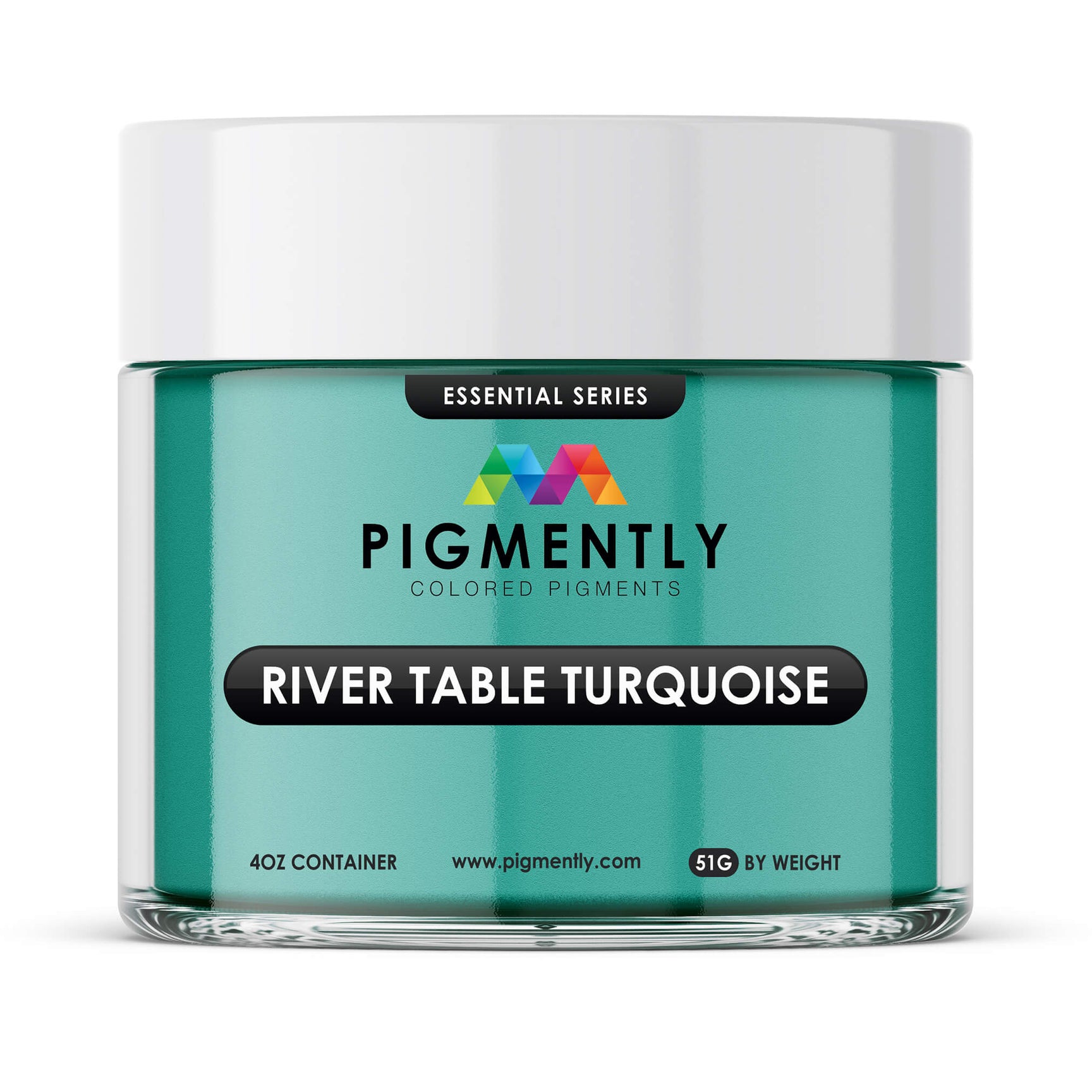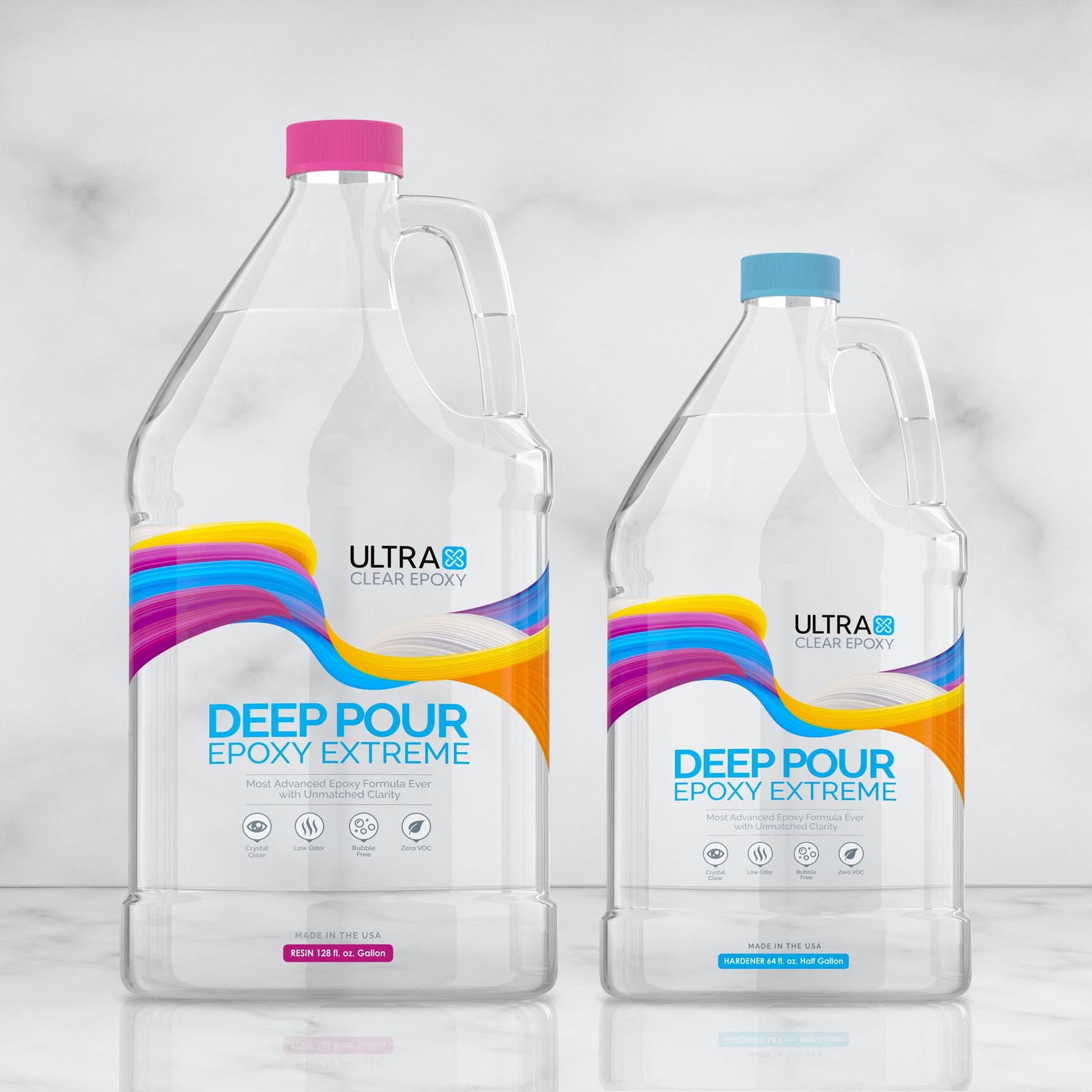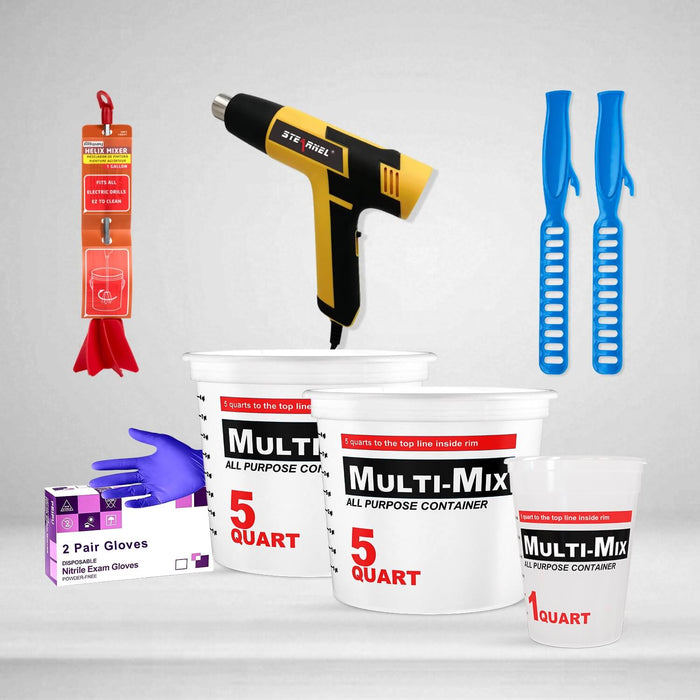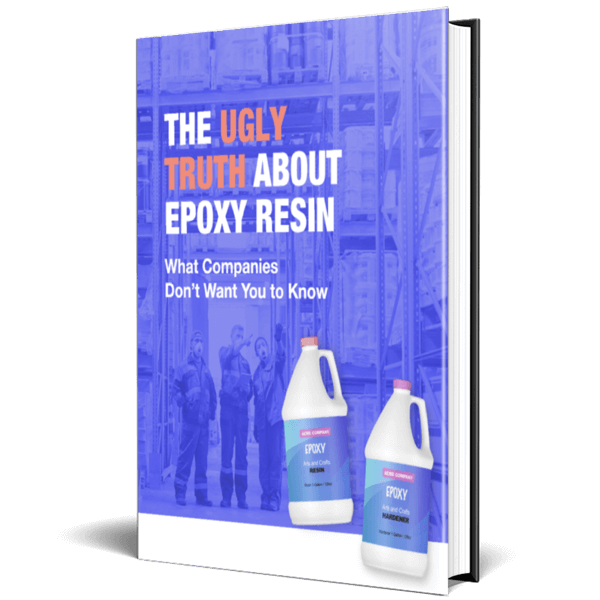An epoxy countertop is one of the most common types of epoxy projects. Though the process is relatively simple, there are still a lot of small details that people often have questions about.
In this article, we'll be answering some of the most common questions we receive about epoxy countertop projects.
Epoxy Resin FAQs: Countertops edition
Here is a list of what questions we answer in this FAQ article:
- What are the downsides of epoxy countertops?
- How much does it cost to epoxy a countertop?
- Is epoxy hard enough for countertops?
- Can you epoxy over old countertops?
- What is the difference between epoxy and resin countertops?
- How many coats of epoxy do you need for a countertop?
- How long does it take to epoxy countertops?
We'll answer each of these in list order, one by one.
FAQ #1: What are the downsides of epoxy countertops?
Epoxy countertops have a couple of drawbacks to balance out their many strengths. For one, they have only medium heat resistance. Epoxy resin can handle temperatures of up to 135°F with ease. Beyond that, though, it may start to soften or take other forms of heat damage.
Heat damage concerns are a common problem with countertop materials in general, and they're also a problem that is easily avoided. For hot items such as pots and pans, you can simply use pot holders or trivets to put a buffer between the epoxy surface and the heated item. This allows the heat to disperse before it gets to a point of concern. With super hot mugs or similar dishes, coasters can also help.
Epoxy also has a tendency to yellow in direct sunlight. This can be avoided by providing the countertop with shelter. You can also mitigate this by using mica powder pigments, which are colorants you can use to tint your epoxy prior to applying it.
Click here to learn more about the downsides and upsides of epoxy countertops.
FAQ #2: How much does it cost to epoxy a countertop?
This varies greatly by the size of the project. Typically a high-quality epoxy resin will cost between $100 to $150 per gallon.
You can often save more by buying in higher quantities. Since a gallon of our UltraClear Bar & Table Top Epoxy covers 16 sq ft for a flood coat and 48 ft for a seal coat (which we recommend), you simple need to divide you total sq ft by this amount, then multiply it by the cost per gallon.
Additionally, there will be some basic tools and supplies necessary to complete the project. Or you may have professional contractors handle the job, which can make things a lot easier for you if your budget allows it.
Click here to learn more about the costs of countertops and bar tops.
FAQ #3: Is epoxy hard enough for countertops?
Absolutely. Epoxy is more than hard enough for countertops, boasting exceptional impact resistance and scratch resistance, along with other benefits such as waterproofing.
Click here to learn more about the durability of epoxy countertops.
FAQ #4: Can you epoxy over old countertops?
Yes. In fact, this is also quite common. Many users elect to put epoxy over their older countertops to preserve them aesthetically while keeping them still usable.
Click here to learn more about applying epoxy to older countertops.
FAQ #5: What is the difference between epoxy and resin countertops?
Usually when people say epoxy countertop or resin countertop, they're referring to the same thing. In other words, there is no difference—they're the same thing.
Sometimes, a person might be referring to polyester resin when they say resin, but that's pretty uncommon for countertop usage; polyester resin is more commonly seen in the construction of watercraft.
FAQ #6: How many coats of epoxy do you need for a countertop?
For an epoxy countertop, you'll need just one flood coat in most cases. We also recommend applying a seal coat beforehand, which uses much less resin and is manually brushed on. This will prevent most air bubbles from forming. The rest can be easily removed.
FAQ #7: How long does it take to epoxy countertops?
This will vary by the size of the project. If you just want to know curing times, those are typically about 72 hours. Otherwise, the length of time it takes will be determined by whether you're doing brand new countertops or refurbishing older ones, and whether you'll be handling it yourself or hiring contractors.
You can expect the process to take several days including curing times.
Additional Resources
We hope these answers have been helpful to you. Below are a few additional FAQ articles we've written that may also be of use.
- Epoxy resin FAQs: The curing phase - Q&As about the curing phase.
- Epoxy resin FAQs: Bonding and curing - Q&As about epoxy's ability to bond and more answers about the curing phase.
- Epoxy Resin FAQs: Cleaning and maintenance - Q&As about maintaining your epoxy finish and keeping it clean.
Have questions? Want advice? Contact us!
If you have any questions about epoxy countertops, or if you'd like assistance in planning an epoxy project, please reach out to us at UltraClear Epoxy—our epoxy experts are ready to assist!
You can contact us via phone or email here. During business hours, you can also text chat online with one of our resin specialists by clicking the Help button at the bottom of your screen.
In our online store, you'll find a variety of useful tools and supplies, ideal for resin projects, plus our award-winning UltraClear Bar & Table Top Epoxy and our UltraClear Deep Pour Epoxy.


